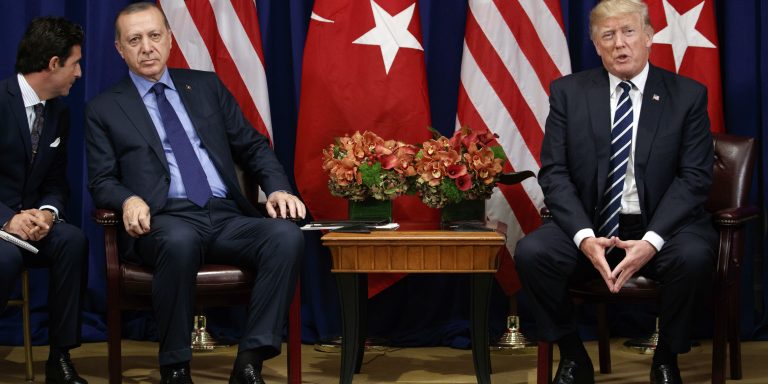INTELBRIEF
December 15, 2017
TSC IntelBrief: Relations Between the U.S. and Turkey in Crisis

• On December 12, National Security Advisor H.R. McMaster said Turkish sources had financed extremist Islamic ideology from the Balkans to southeast Asia, prompting a furious Turkish response.
• On December 13, Turkish officials summoned an FBI attaché serving at the U.S. Embassy in Istanbul, over an ongoing corruption trial in the U.S. where allegations have been made against Turkey’s President and other high officials.
• The case of Mehmet Hakan Atilla, a Turkish banking official, has added to the tension and distrust dividing the U.S. and Turkey, respectively the largest and second largest militaries in the NATO alliance.
• Turkey continues its descent into authoritarianism, topping the list of countries that have jailed journalists for a second consecutive year.
Relations between the United States and Turkey, once close allies, entered a serious decline after Turkish President Recep Tayyip Edrogan held Washington partly responsible for a failed military coup in 2016. Remarks by U.S. National Security Advisor H.R. McMaster on December 12 appear to have deepened that decline. Speaking at an appearance in Washington, D.C., McMaster called Turkey—though not the government in Ankara—a leading source of funding spreading extremist Islamic ideologies around the world. Turkey’s foreign ministry responded quickly, calling the claim 'astonishing, baseless and unacceptable.’ The Ministry went on to highlight Washington’s direct military support for the Kurdish YPG, which Ankara considers a terrorist group.
The ongoing crisis in U.S.-Turkish relations has had many causes and exacerbating factors of which this is just one of the latest. The trial in U.S. Federal Court of Mehmet Hakan Atilla is another major irritant between Ankara and Washington. Atilla is a former official at Halkbank, a state-run Turkish bank that has been accused of helping Iran evade U.S. sanctions. The trial has seen allegations of high-level corruption, allegedly committed by Turkish officials and by President Erdogan and members of his family, claims the Turkish government has angrily denied. On December 13, Turkish officials summoned an FBI agent at the U.S. Embassy in Istanbul over trial testimony from Huseyin Korkmaz, a Halkbank official who testified the FBI gave him $50,000 after he fled Turkey for the United States.
President Donald Trump’s announcement on December 6, recognizing Jerusalem as Israel’s capital, has become another source of conflict. A furious President Erdogan responded by calling an emergency meeting of the Organization of Islamic Cooperation, held on December 13, where both Israel and the U.S. were condemned. Syria’s civil war has also divided Washington and Ankara. Turkey’s support for rebels seeking to topple the Assad regime has at times included terrorist groups such as the al Qaeda affiliate Jabhat al-Nusra. Meanwhile, Turkey’s recent purchase of Russia’s advance air defense system, the S-400, is another serious point of friction. The S-400 was specifically designed to shoot down NATO aircraft, the alliance of which Turkey is a key member.
President Trump has not criticized President Erdogan for Turkey’s turn towards authoritarianism. However, other high-ranking U.S. officials have begun speaking out, as Turkey moves towards Russia and away from the West. All the while, Turkey remains the most repressive country in the world for journalists trying to do their jobs. For a second straight year, the Committee to Protect Journalists has put Turkey at the top of their list of nations imprisoning journalists, ahead of China and Iran.
For tailored research and analysis, please contact: info@thesoufancenter.org
.
.